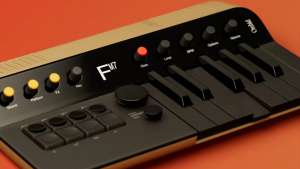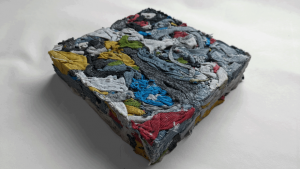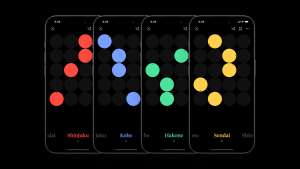Track of the Week "Brotherhood", the title track of Kesivan Naidoo's second album and first track on its B Side, begins with a raindance of a dramatic introduction, slowly finding its way into rippling keys and strings that precipitate throughout the track, keeping us hanging on for the next note, and the next, dripping with trance-inducing anticipation.
One of the most prolific drummers in the country, Naidoo has just completed this latest offering, the aptly named album Brotherhood, a nuanced and scintillating melding of various indigenous tribal textures, traditional melodies and contemporary sounds. Drawing inspiration from his travels to Kenya, Ghana and India and from Cape Town's jazz scene, he strives to keep his music “of the now”, essentially cataloguing this collection to pass down to future generations as the spirit of the life he lived in music. New York audiences will get to savour his sound when he performs with fellow band members Shane Cooper, Justin Bellairs, Reza Khota, Feya Faku and Kyle Shepherd as The Lights at Carnegie Hall on 30 October. We stole a moment to talk to Naidoo about his striking new album before he left for the US.
So you've just returned from Joy of Jazz in Johannesburg, where you performed these tracks from Brotherhood. Is this the first time you've done it live?
Well this band has been writing all of the music for quite some time... I've been writing music in general for over 10 years now, and different groups have been playing my music so it all slowly came together with time. We launched it just after Joy of Jazz at The Orbit... This particular configuration, we've been playing it for about a year now, but it wasn't available anywhere. I was in Joburg with Mark Rossi, Carlo Mombelli and Feya Faku, and it just made sense to do it, you know, because most of the musicians from the band were there and it was nice to have some game time with all of us in one place. I think Joburg has missed a venue like this – and now we have The Orbit, which I think revitalised the scene quite a bit as well so we decided to launch it there.
What made you choose these tracks, specifically? I see you've got an A Side and a B Side, when so often these days people resort to choosing five tracks, pushing them together and calling it an EP.
Well, it's a double record for sure, and for the four days that we recorded this in, we were so inspired. I just couldn't decide on which ones to delete, so we went with the A and B sides... I like the tradition of making a record, and listening to an album from beginning to end because there's also a real importance of the flow of a record and how the artist chooses his tracks. There's this modern consumerism idea that albums end up being little chunks of the whole picture but for me each track is significant in the idea of the whole album.
The music I've been hearing has been based on the typical configuration of the trumpet, the guitar, the piano etc. These guys are in themselves stand-alone musicians who are doing great things in the SA jazz scene, so I wanted to showcase the individual brilliance that I think these guys are. Feya Faku on trumpet is the special guest, then there's Kyle Shepherd on piano, Reza Khota on guitar, Shane Cooper on double bass and young Justin Bellairs on the saxophone. Having all these guys on one record is such a blessing.
You guys also seem to have grown together throughout the years with an easy ebb and flow between you. I was a regular on Tuesdays at Asoka, when you put together the Restless Natives with Shane, and he was also with you in Babu, which also featured Lee Thompson – and then there was even Closet Snare at one point as well... What would you want to ask the audience once they've heard your music and the evolution of your sound?
Those were fun times! These guys are so experimental with their sounds and I love jazz, classical music, dance music, and indigenous music of different countries so it's nice to explore the many different ways those can be expressed. Obviously the Babu thing was more of an Indian classical exploration, steeped in that traditional way with Reza. Closet Snare was electronic with modern grooves... All those past bands have forged in me a unique way of thinking of composition and it all comes up in Brotherhood. I hope that when folks listen to the album, they go on a journey with us. A lot of jazz gets made that is music made for musicians, which is fine but I would love to ask my audience, “Did you get it? How did it make you feel?” Because we make music for the love of those sounds and colours and I hope that's what grabs them. I'm one of those guys who likes to put on a record when nothing else is going on and see what the musician is trying to do, and I hope that people can do the same with this one. It's reflective of where I'm coming from, putting all those past elements together, mixed with my love of Coltrane and some things I've never done before... it's all in here as The Lights, as a brotherhood.
The Brotherhood album by Kesivan & The Lights was produced with the support of Design Indaba.






